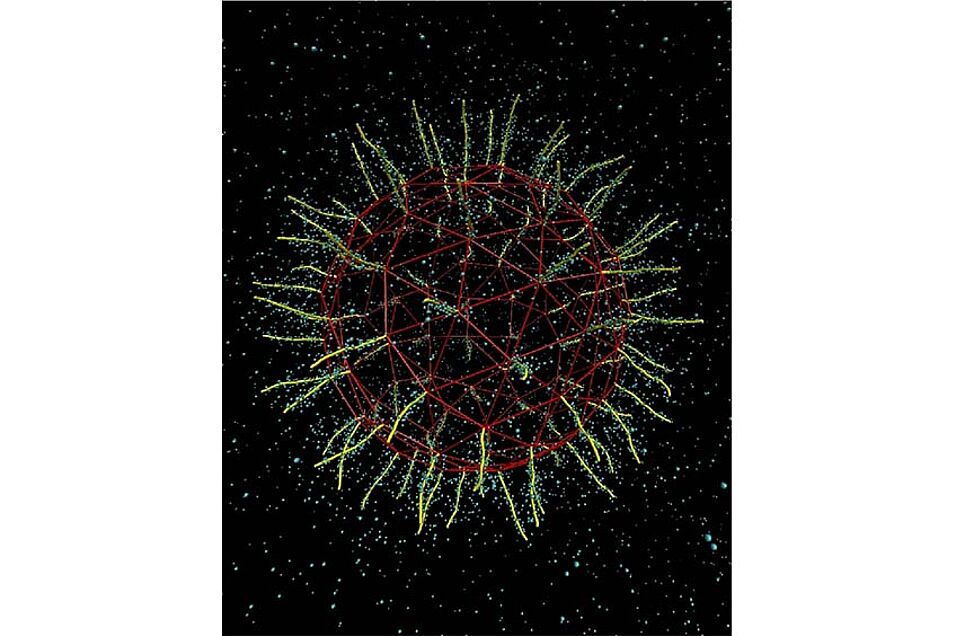Apart from being the polymer that carries genetic information, DNA is also a macromolecule that raises the interest of physicists and chemists due to its hybrid nature: on the one hand it is a long, flexible polymer at large length scales and on the other it carries electric charge and it has chemical rigidity that make it hard to bend at short scales. In a recent collaboration between experimentalists in the Department of Chemistry at the University of Florence and theorists in the Faculty of Physics at the University of Vienna, the single particle properties and interactions of spherical brushes formed by long, double-stranded DNA (dsDNA) fragments were investigated in detail when confined into a two-dimensional region of space. Spherical dsDNA brushes are obtained when a large number of DNA fragments, in this case about 100.000 of them, are anchored on a micron-sized colloidal particle. Experimentally, a very unexpected behavior was observed upon increasing the brush concentration: contrary to what happens for hard colloids, which order more strongly and crystallize as density grows, the DNA brushes first shrunk their size as more were added into the sample. Upon further concentration increase, strings, chains and larger aggregates formed and, only at very high densities and after and additional, sudden uniform compression, crystallization occurred. With the help of analytical calculations and simulations from the Viennese team, which then motivated additional experiments in Florence, the researchers could shed light in the intricate mechanisms behind the observed phenomena. The shrinkage of the brushes can be traced back to the mutual high pressure they exert on each other as they touch; and the formation of chains is due to base-stacking attractions between blunt-ends of the stretched DNA chains in the brush, which can be reduced and eventually suppressed by the addition of salt that leads to back-folding of the chains. On top of controlling salinity, the effective attraction resulting from blunt-end interactions can be tuned by varying the number of DNA fragments and potentially by changing temperature and the sequence of the free-ends, thus providing a flexible mechanism to guide the assembly of colloidal structures with desired plasmonic and photonic properties.
The highly challenging task of synthesizing and characterizing the DNA-brushes has been performed by long-time collaborators in Jülich, Germany, who invented the physical system at hand, and the whole work has been initiated in Guanajuato, Mexico, bringing forward the truly international and interdisciplinary nature of the project. The joint work has recently appeared in the high-impact journal ACS Nano and it underlines the continuation of a long tradition of the Soft Matter Theory group in Vienna in carrying our fruitful collaborations with experimental groups worldwide.
Publication:
Ivany Romero-Sanchez, Ilian Pihlajamaa, Natasa Adzic, Laura E. Castellano, Emmanuel Stiakakis, Christos N. Likos, and Marco Laurati, "Blunt-end driven re-entrant ordering in quasi two-dimensional dispersions of spherical DNA brushes", ACS Nano 16, 2133-2146 (2022). DOI: https://pubs.acs.org/doi/10.1021/acsnano.1c07799
Contact
Univ.-Prof. Dipl.-Ing. Dr. Christos N. Likos
Computational and Soft Matter Physics
Faculty of Physics
1090 - Wien, Kolingasse 14-16
+43-1-4277-73230
christos.likos@univie.ac.at

